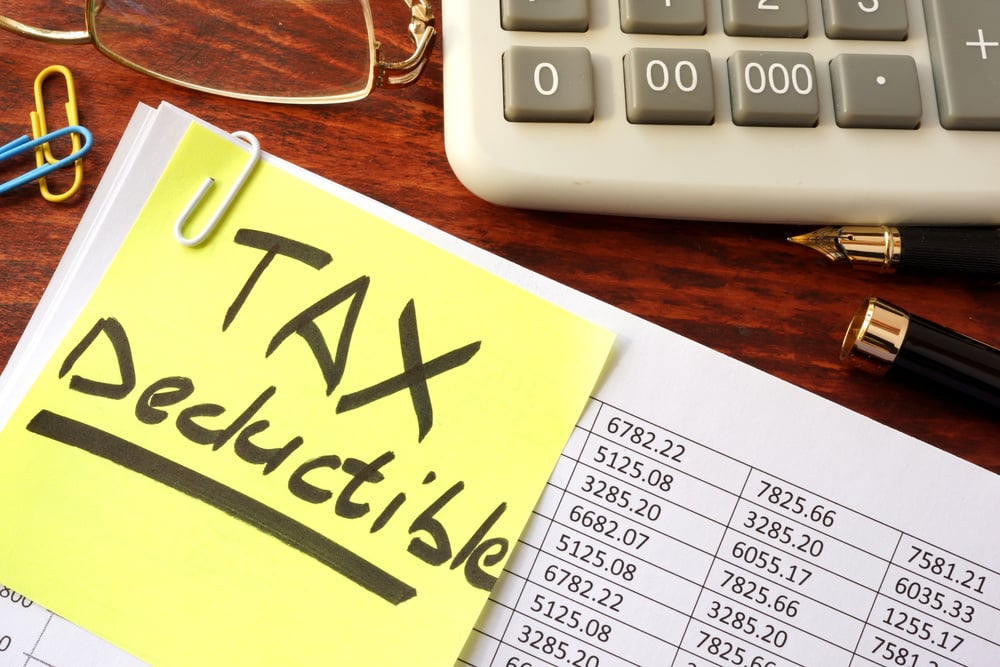
When you build or buy into for-profit properties for residential occupancy, it's a major investment. That's why it's vital to take full advantage of all the tax breaks and deductions for which rental property owners are eligible. Many of these owners want to reap the profits from their investments but are less interested in performing the hands-on duties associated with property management.
These owners find that it's simply a lot easier for them to hire someone else to manage the rental properties and act as the liaison between the residents of the properties and the owner(s). Of course, there are fees associated with property management, whether the units are managed by an on-site resident, another individual living off-site or a property management company.
Can Property Owners Deduct These Fees on their Federal Income Taxes?
When income tax time rolls around, rental property owners will be glad to know that the fees that they pay for the management of their rental properties are tax deductible. (As a best practice, make sure you consult with a trusted tax advisor about deductions related to your investment properties)
That legitimate deduction is significant and shouldn't be overlooked by you or your tax preparer. To maximize their return on investment (ROI), individuals and corporations can reduce their tax bill by adding this deduction.
Save Property Management Receipts for Your Tax Preparer
Other than coming up with the money to pay your federal income taxes, the second worst part of tax preparation is the paper chase. All those expenses you paid out over the year for repairs, pest control, advertising, cleaning and other costs associated with the upkeep of your rental properties can be hard to pin down come tax time. But collecting and preserving receipts is one of the duties of a reliable property management company.
Whether you turn your files over to the tax preparer or sit down to do them yourself, all your receipts for the tax year should be in order and available to substantiate your deductions and expenses if you ever end up being audited.
Which Receipts Should Be Saved by Property Managers?
One easy way to stay on top of all your receipts is to have your property manager generate financial reports either monthly or quarterly. If you have a lot of units or several apartment complex or condo locations to manage, you may opt to receive reports on a monthly basis. Owners of just one or two rental properties may only need quarterly reports to stay on top of expenses and potential tax deductions.
If you rely on a property management company, they will need to save and track receipts for the following:
- Administrative fees
- Monthly rent and deposits from residents
- Pest control invoices
- Inspection fees
- Legal fees
- Costs of credit checks for prospective residents
- Licensing and certification fees
- Repairs and routine maintenance
- Marketing and social media campaigns
- Grass cutting and upkeep of premises
- Insurance costs
- Other purchases
Keep in mind when listing your deductions that there are different categories. For instance, if you need to replace broken appliances, install new windows, change out the locks or patch holes in the walls after a resident moves out, you can write off the total costs of these.
However, installing new roofs to your rental properties would likely be a capital expense that gets depreciated over time just as other improvements to the property would, e.g., adding covered patios to the residents' units.
Other "Hidden" Deductions May Exist
Don't pay more taxes than you owe! Do you pay partial or full costs of the residents' utilities? Water, electric, trash pickup, sewer and gas expenses can all be deducted from the property owners' taxes.
Your property management company will track these expenses to make sure they are fully documented for Uncle Sam.
Property Management Fees Pay for Themselves
In addition to the benefit of being tax deductible, property management fees are one expense that savvy owners realize pays for themselves. All it takes is one 3 a.m. phone call about burst pipes in a resident's unit to make a property owner wish they had someone already tapped and on the job fixing the problem.
Learning more about the benefits of hiring a property management team for your rental units can wind up saving you time, money and frustration.
*As a best practice, make sure you consult with a trusted tax advisor about deductions related to your investment properties.










